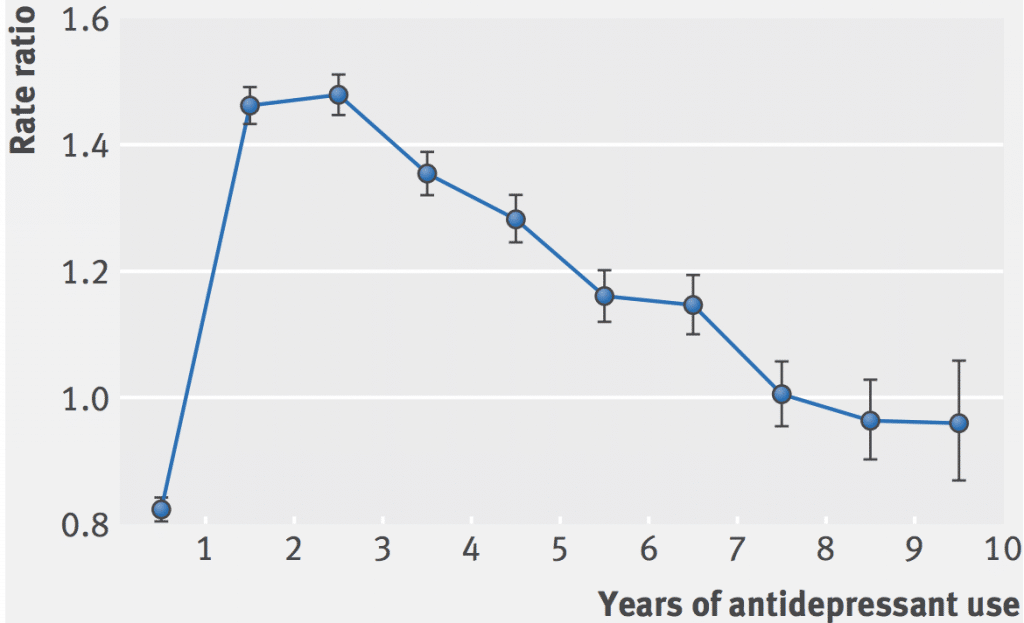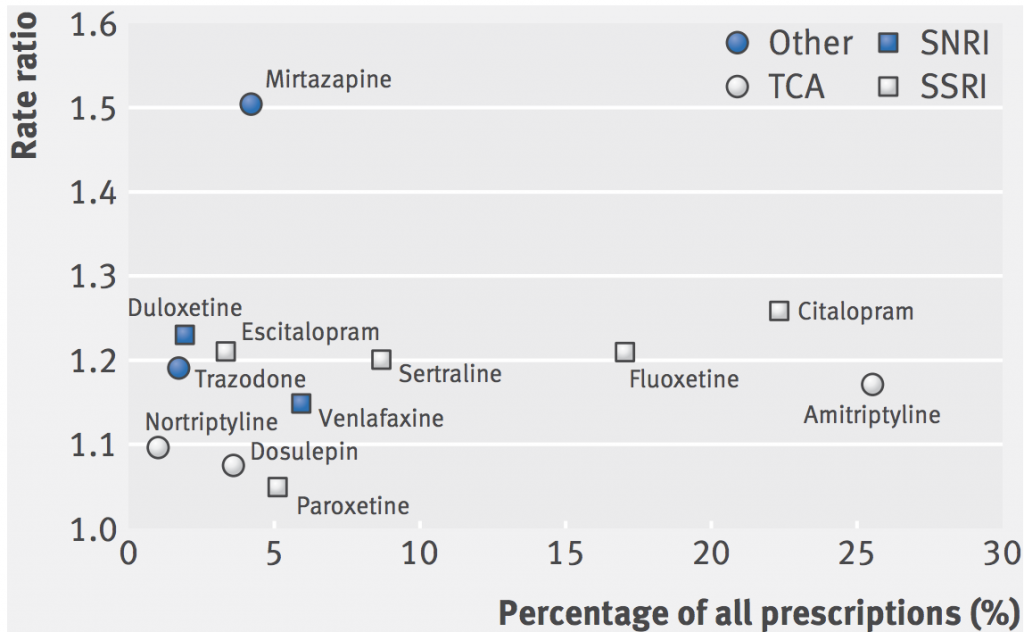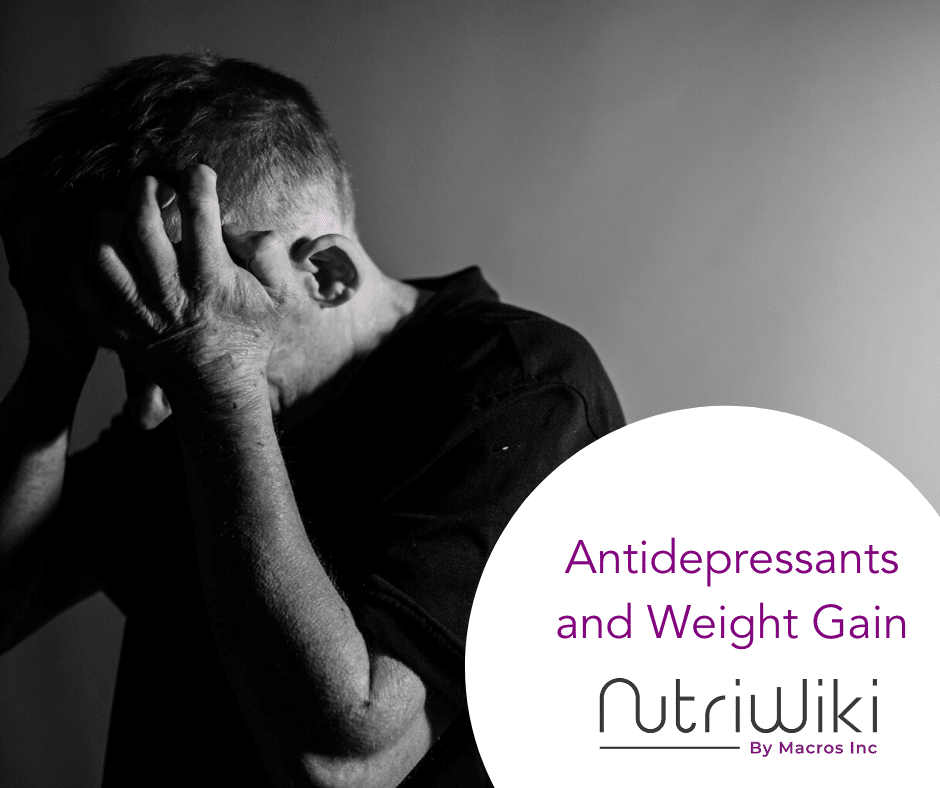Introduction
Depression can have a major impact on the motivation to exercise and/or to follow a dietary plan to maintain weight or lose weight. Often times individuals who are being treated for depression can gain weight. Weight gain from treatment for depression can be either a sign of improvement in patients who have weight loss as a symptom of depression or a residual symptom in patients who overeat when depressed (1). Some of this weight gain is due to antidepressant medications, such as tricyclic antidepressants (TCAs), monoamine oxidase inhibitors (MAOIs), and selective serotonin reuptake inhibitors (SSRIs). As roughly 13% of adults in the United States are on some form of antidepressant, it is important to understand if, and how, they affect body weight. This NutriWiki will cover the effects of antidepressants on weight gain.

Summary
The use of antidepressants increases the risk of weight gain of 5 pounds or more by ~20-30% (2). This risk of weight gain of more than 5 pounds remains for years after initiation of treatment (See Figure 1). When categorized by type of antidepressant, some review papers indicate that TCAs and MAOIs may cause more weight gain than SSRIs, but that isn’t overly clear in the data. Also, exactly how antidepressants can lead to weight gain is unclear, primarily due to the fact that altered behavior and change in food intake is likely causing much of the weight gain and the neuropharmacology is hard to pin down, in relation to energy balance.

Discussion
It is very clear that antidepressants can increase the risk of weight gain in many people. The precise mechanisms by which antidepressants might cause weight gain are not fully understood but there are several proposed ideas.
SSRIs modulate serotonin in the brain, which can alter mood and hunger signals. However, SSRIs are not completely selective and can have off-target effects which also can affect hunger and drive weight gain. Specifically, SSRIs may alter hunger around carbohydrates in individuals with certain neurochemistry (e.g. those who see large effects of SSRIs on their 5HT2 and H1 receptors). SSRIs may also have slight effects on hormones and inflammation that may contribute to weight gain, but these are not well understood in humans.
Other antidepressants such as MAOIs and TCAs may work differently than SSRIs, but they also are not well understood. For example, MAOIs may work to increase dopamine and drive hunger, but may also have an effect on blood glucose which may effect hunger. However, these effects are also not well understood.
Given the unclear landscape of precisely how these drugs may cause weight gain, the best thing to understand is their end results on body weight and look at how to mitigate those effects.
In general, antidepressants (and antipsychotics) do appear to have an effect on body weight. Some have a more pronounced effects than others. For example Mirtazapine has a roughly 50% increased risk of gaining more than 5 pounds, whereas Paroxetine has a roughly 5% increased risk of gaining more than 5 pounds (See Figure 2).

The best course of action to address weight gain while on antidepressants is to be cognizant that antidepressants can affect hunger and satiety and may lead to increased food consumption. There may also be a benefit of increasing physical activity, both structured exercise and non-structured physical activity to help increase energy expenditure (there are also benefits of exercise on mood that are independent of energy expenditure).
References
- Weight gain and antidepressants.
- Antidepressant utilisation and incidence of weight gain during 10 years’ follow-up: population based cohort study.

